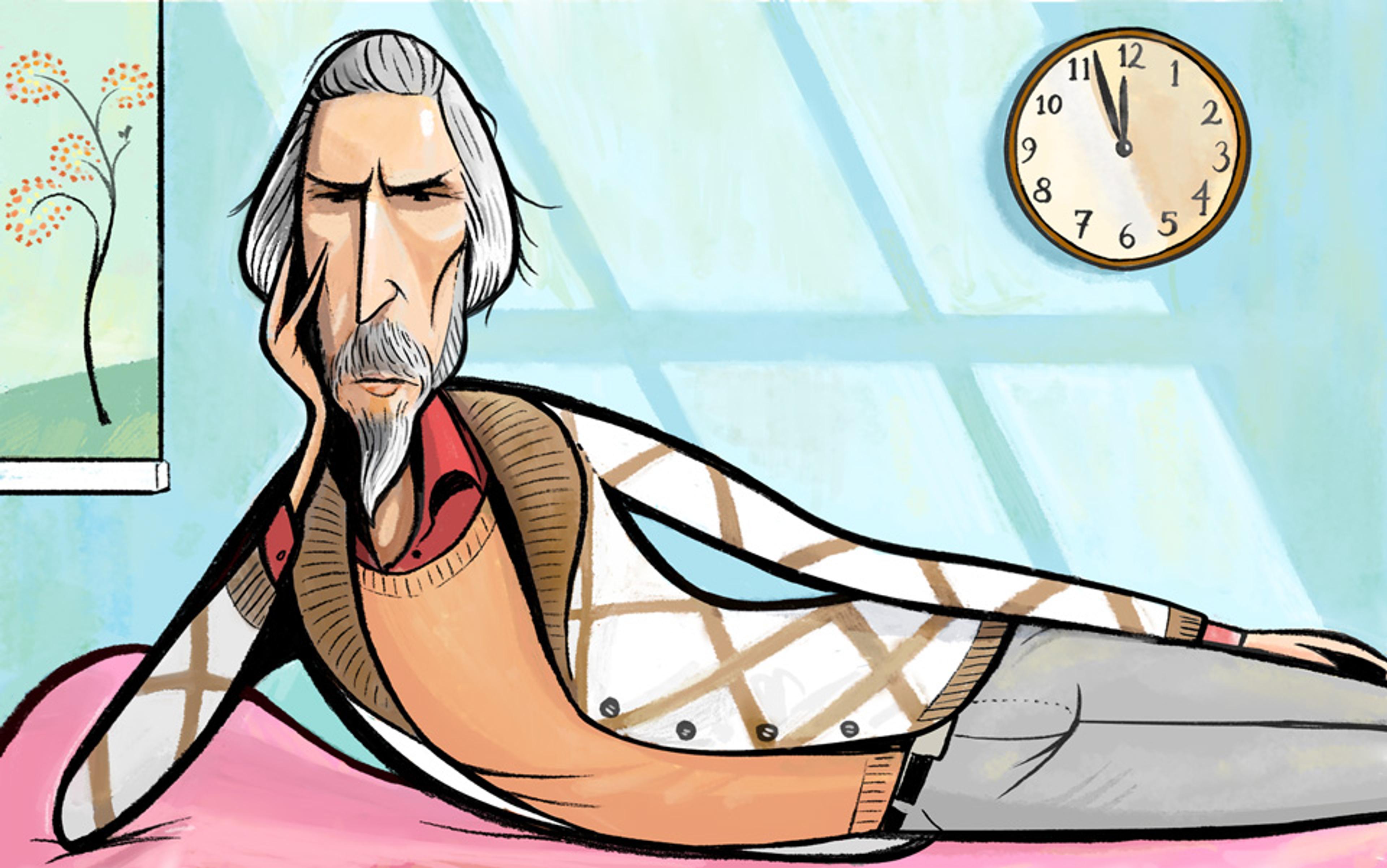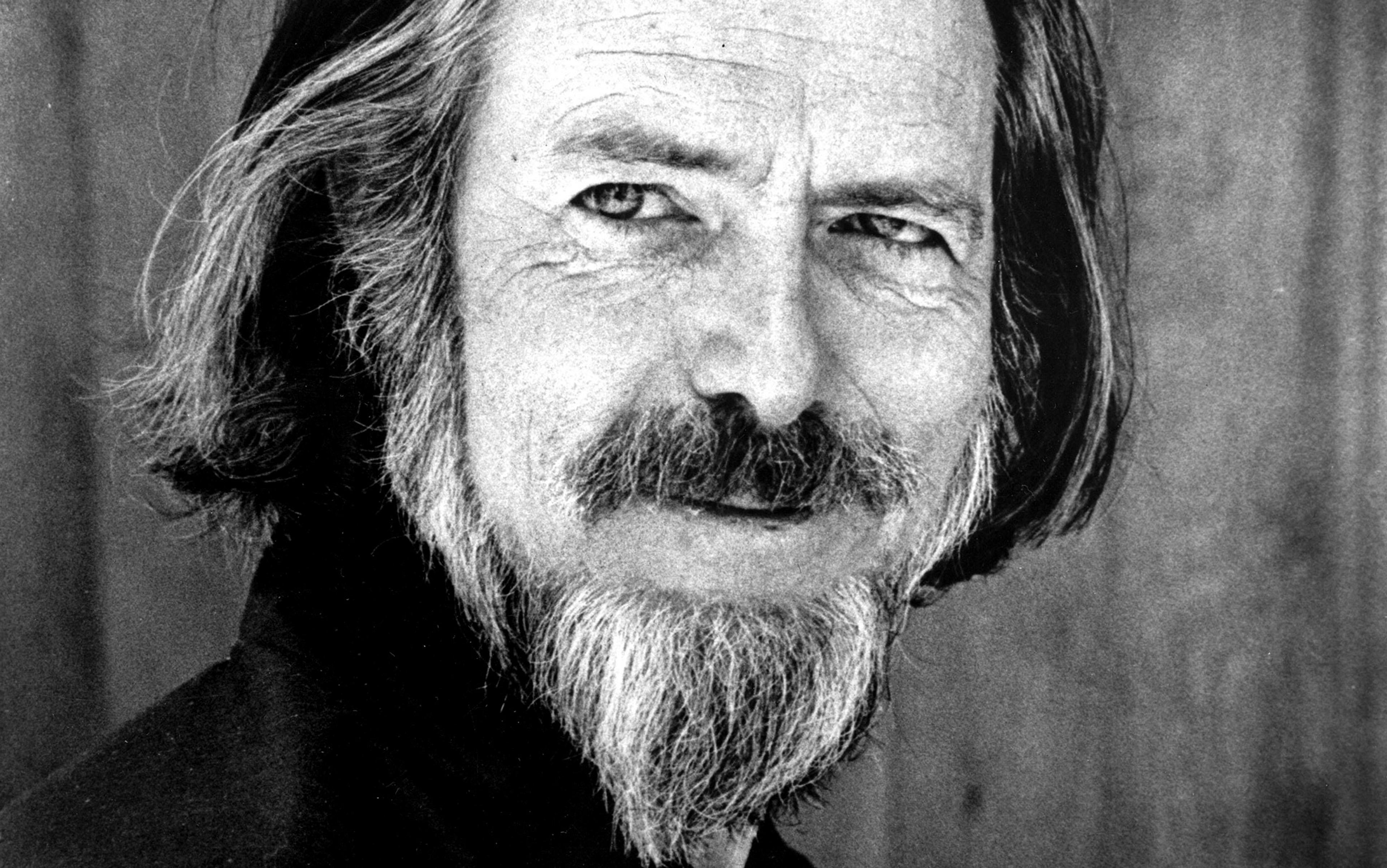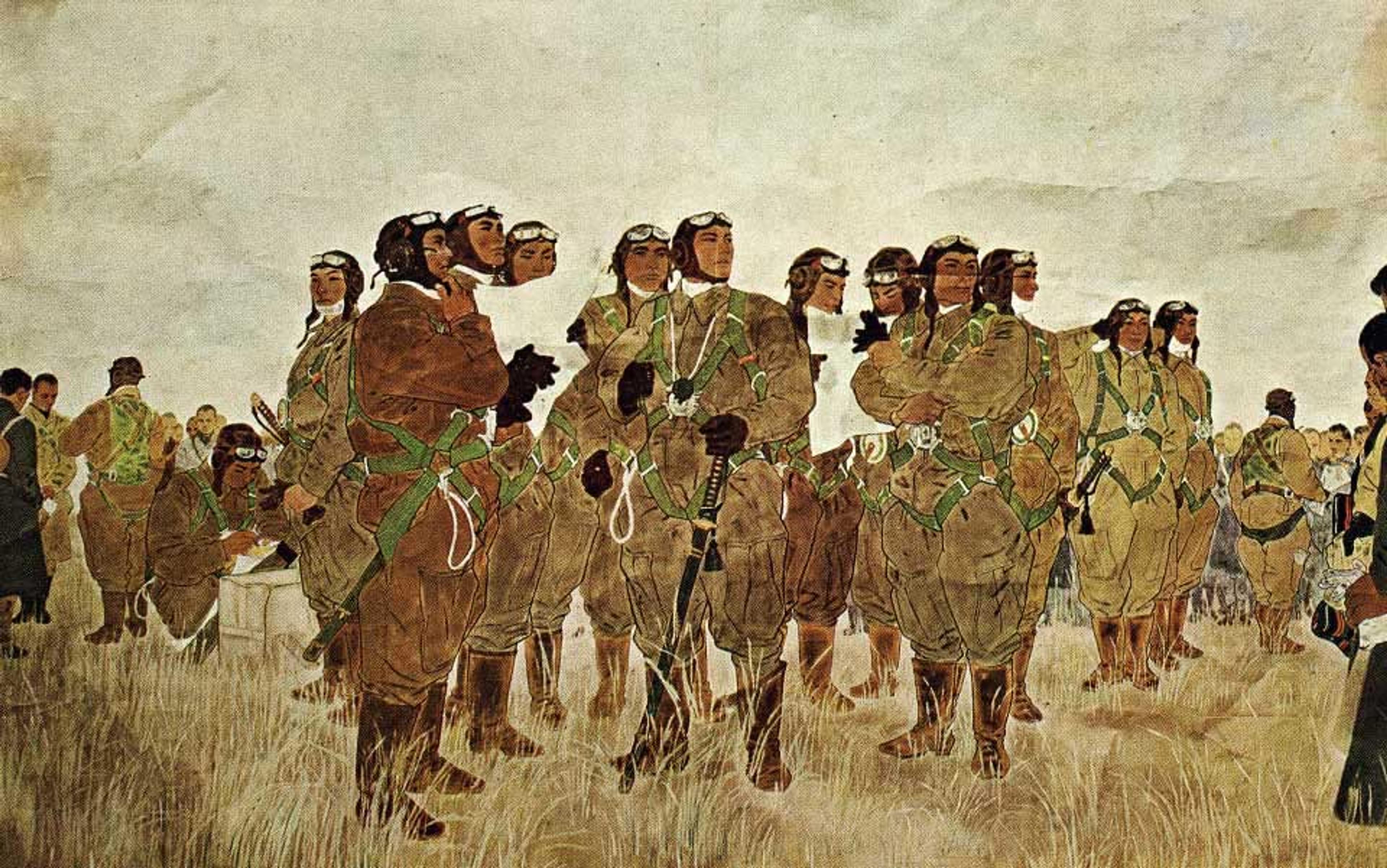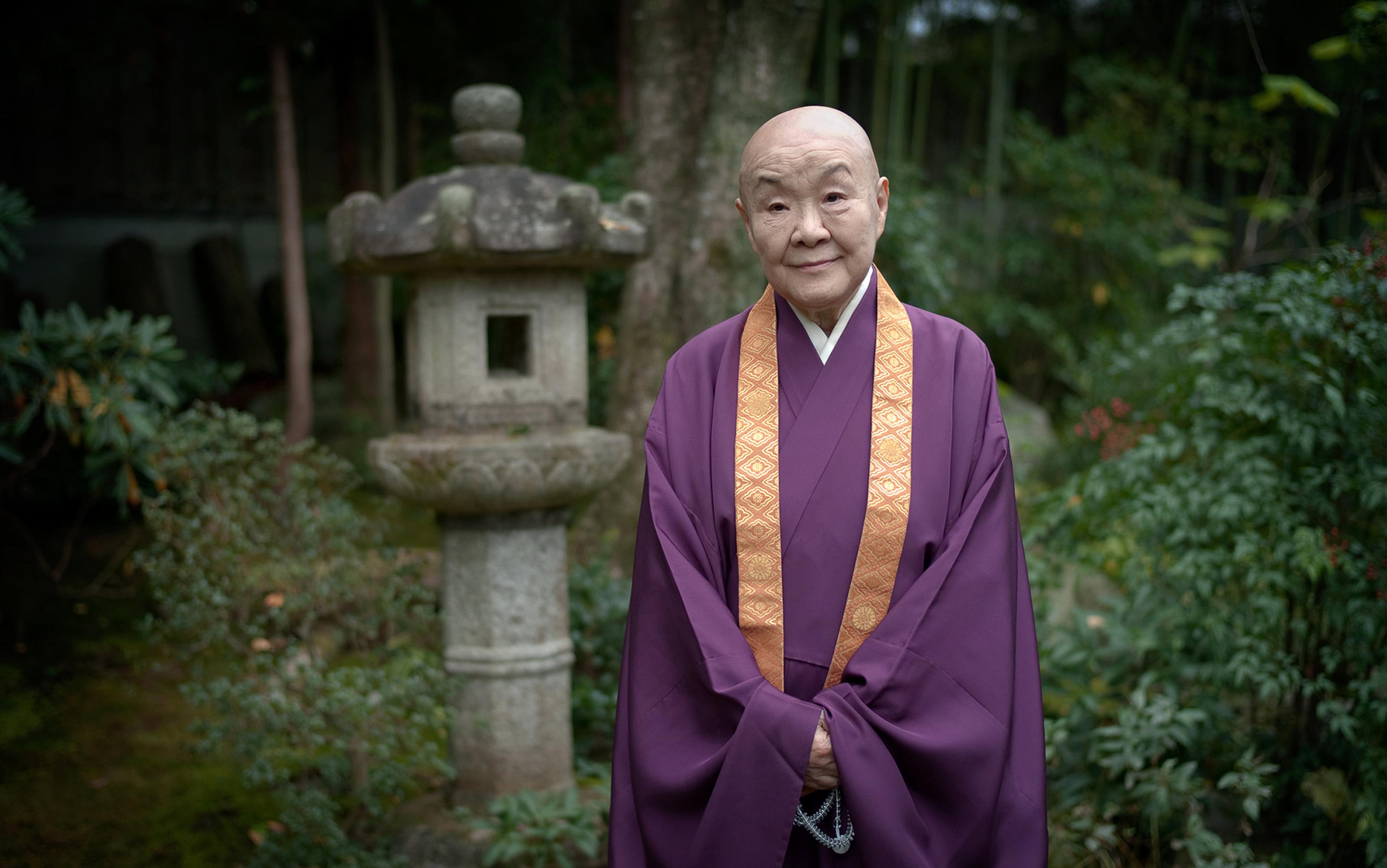Ever since I was a child, I have been acutely sensitive to the idea — in the way that other people seem to feel only after bereavement or some shocking unexpected event — that the human intellect is unable, finally, to make sense of the world: everything is contradiction and paradox, and no one really knows much for sure, however loudly they profess to the contrary.
It is an uncomfortable mindset, and as a result I have always felt the need to build a conceptual box in my mind big enough to fit the world into. Most people seem to have a talent for denying or ignoring life’s contradictions, as the demands of work and life take them over. Or they fall for an ideology, perhaps religious or political, that appears to render the world a comprehensible place.
I have never been able to support either strategy. A sense of encroaching mental chaos was always skulking at the edges of my life. Which is perhaps why I fell into an acute depression at the age of 27, and didn’t recover for several years.
The consequence of this was my first book, a memoir called The Scent of Dried Roses (1996). While I was researching it, I read the work of the psychologist Dorothy Rowe, a quiet, almost secret, follower of Buddhist philosophy. Secret, because Rowe knew what the term ‘Buddhist’ implied to the popular imagination (as it did to me) — magical thinking, Tibetan bell-ringing, and sticking gold flakes on statues of the Buddha.
Truth is not to be found by picking everything to pieces like a spoilt child
It was through Rowe’s writing that I first came across Alan Watts, and he sounded like an unlikely philosopher. His name evoked the image of a paper goods sales rep on a small regional industrial estate. But through Watts and his writing, I was exposed directly to the ideas of Zen Buddhism. I was suspicious at first, perceiving Zen Buddhism to be a religion rather than a philosophy. I wasn’t interested in the Four Noble Truths, or the Eightfold Path, and I certainly didn’t believe in karma or reincarnation.
All the same, I read a couple of Watts’s books. They made a significant impact on me. The Meaning of Happiness (1940) and The Wisdom of Insecurity (1951) are striking primers to his work, and they underlined what Rowe was already teaching me: that life had no intrinsic meaning, any more than a piece of music had an intrinsic ‘point’. Life was, in Zen parlance, yugen — a kind of elevated purposelessness.
Watts, like Rowe, showed me how we construct our own meanings about life. That nothing is a given and, since everything is uncertain, we must put together a world view that might fit roughly with the facts, but is never anything other than a guess — a working fiction. This, too, is a typical Zen understanding — that life cannot be described, only experienced. Trying to see all of life is like trying to explore a vast cave with a box of matches.
Impressed though I was, I more or less forgot about Watts after I finished his books, and pursued my career as a fiction writer. I was weary of introspection. Then, years later, a bad spell in my life propelled me back into a chasm. In 2004, three close friends died in sudden succession. One died in front of my eyes. Another was murdered. A third succumbed to cancer. My depression — and that original sense of meaninglessness — resurfaced. I turned to Watts again. This time, it was as if I was reading for dear life.
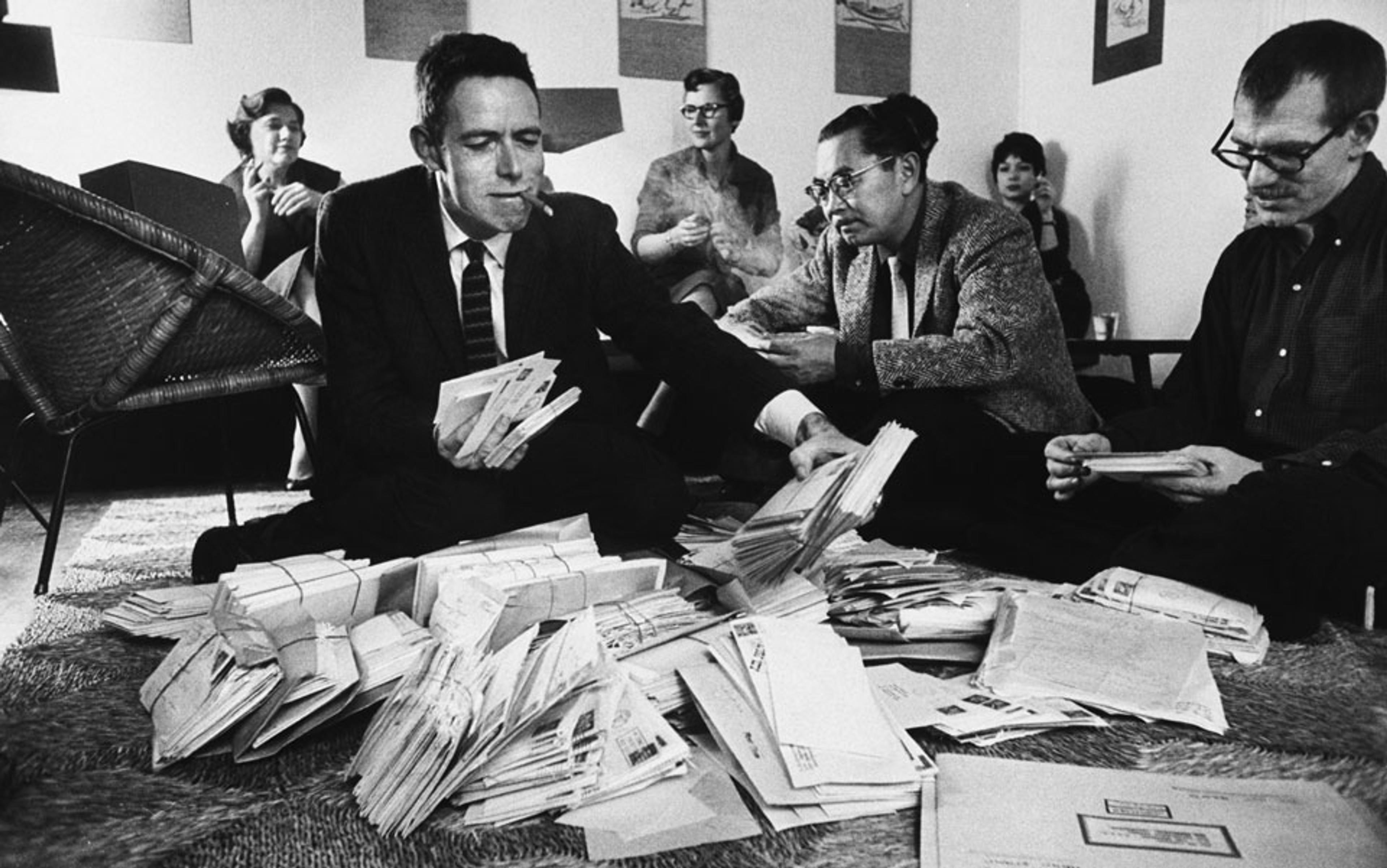
Alan Watts had been prolific in his 58 years. He died in 1973, after producing not only 27 books but also scores of lectures, all of which were available online. They had intriguing titles such as ‘On Being Vague’, ‘Death’, ‘Nothingness’ and ‘Omnipotence’. I stopped writing novels and worked my way through every one of them instead.
I found a DVD of an animation of Watts by Trey Parker and Matt Stone (of South Park fame). I discovered that Van Morrison had written a song about him, and that Johnny Depp was a follower. But he remained largely unknown in Britain, even though he was English, albeit an expatriate.
Watts was born in 1915 in Chislehurst, Kent. His father had been a sales rep for the Michelin tyre company and his mother was a housewife whose father had been a missionary. In later life, Watts wrote of mystical visions he’d had after suffering fever as a child. During school holidays — while he was a scholar at King’s School in Cambridge — he went on trips with the Buddhism enthusiast Francis Croshaw, who first developed his interest in Eastern religion.
With penetrating eyes like Aleister Crowley’s, he described himself as a ‘spiritual entertainer’
By the age of 16, Watts was the secretary of the London Buddhist Lodge, which was run by the barrister Christmas Humphreys. But Watts spoiled his chances of a scholarship to Oxford because one examination essay was judged ‘presumptuous and capricious’. And, despite his obviously brilliant mind, Watts never achieved a British university degree. This, perhaps, is another of his qualities that chimes with my own spirit — I too left school with only two A-levels, and am, like Watts, an autodidact.
As a young man, Watts worked in a printing house and then a bank. During this time, he hooked up with the Serbian ‘rascal guru’ Dimitrije Mitrinović — a follower of the Armenian spiritual teacher GI Gurdjieff and the Russian esotericist PD Ouspensky — who became a major influence on his thinking.
At the age of 21, in 1936, he attended the World Congress of Faiths at the University of London. There, he heard the renowned Zen scholar DT Suzuki speak, and was introduced to him. Later that year, Watts published his first book The Spirit of Zen.
That same year, he met the American heiress Eleanor Everett, whose mother was involved with a traditional Zen Buddhist circle in New York. He married Eleanor in 1938 and they moved to America, where he trained as an Episcopal priest, before leaving the ministry in 1950, thus separating once and for all from his Christian roots. From then on he concentrated on the study and communication of Eastern philosophical ideas to Western audiences.
I felt powerfully attracted to Alan Watts. Not only to his ideas, but to him, personally. Watts was no dry, academic philosopher. With eyes hooded and penetrating like Aleister Crowley’s, he was a jester as well as a thinker, describing himself as a ‘spiritual entertainer’. Aldous Huxley described him as ‘a curious man. Half monk and half racecourse operator.’ Watts wholeheartedly agreed with Huxley’s characterisation. He carried a silver cane ‘for pure swank’, he hung out with Ken Kesey and Jack Kerouac (he is even parodied in On the Road as Arthur Whale). His English public school-educated voice was rich and deep, like a prophet’s, and his laugh juicy and contagious.
But it was his thinking that most excited me. He was, if not the earliest, then certainly the foremost translator of Eastern philosophical ideas to the West. In some ways, his interpretations were radical — for instance, he dismissed the core Zen idea of zazen (which meant spending hours seated in contemplative meditation) as unnecessary. ‘A cat sits until it is tired of sitting, then gets up, stretches, and walks away,’ was his forgiving interpretation of zazen. Slightly less forgiving was his comment on Western Zen enthusiasts, whom he mocked as ‘The uptight school … who seem to believe that Zen is essentially sitting on your ass for interminable hours.’ It was a great relief to read this for someone like me, who found the idea of excessive meditation as unhealthy as the idea of excessive masturbation.
Watts also rejected the conventional ideas of reincarnation and the popular understanding of karma as a system of rewards and punishments carried out, lifetime after lifetime. It was this radical approach that made his ideas so fresh — he had no time for received wisdom, even from those who claimed to know Zen inside out.
The idea of walking around with a metaphorical stick to whack yourself with is foreign to a Zen master
Many Zen ideas have become debased into ‘new age’ philosophy, basely transmuted into wishful thinking, quasi-religious mumbo jumbo and the narcissistic fantasies of the ‘me generation’. But before the beatniks and the hippies got hold of it, Zen philosophy, as described by Watts, was hard-edged, practical, logical and, in some ways, oddly English in tone, as it had deep strands of scepticism and humour. (You’ll never see Christian saints laughing. But most of the great sages of Zen have smiles on their faces, as does Buddha.)
Zen and Taoism are more akin to psychotherapy than to religion, as Watts explained in his book Psychotherapy East and West (1961). They are about finding a way to maintain a healthy personality in a culture that tends to tangle you up in a lot of unconscious logical binds. On the one hand, you are told to be ‘free’ and, on the other, that you should follow the demands of the community. Another example is the instruction that you must be spontaneous.
These kinds of snags, or double binds, according to Zen writings, produce inner tension, frustration, and neurosis — what Buddhism calls dukkha. Watts saw his job, via Zen philosophy, to teach you to think clearly, so that you could see through conventional thinking to a place where your mind could be at peace inside a culture that could have been designed to generate anxiety.
But, although he was an entertaining writer who presented his ideas with a brilliant clarity, Watts had a difficult job on his hands — mainly because Zen and Taoism are so fundamentally counter-intuitive to the Western mind. Western philosophers and laymen find Eastern thinkers frustrating because Buddhist sages don’t have the same emphasis on the power of language, reason and logic to transform the self or to ‘know’, in the way Westerners think of the word.
The riddles, or koans, that Zen thinkers speak in are intended to trip you up and make you realise how inadequate words — either spoken or inner dialogue — are in making sense. Zen emphasises intuition and mushin, that is, an empty mind, over planning and thought. The ideal is that your mind can be unblocked from maya (which means both illusion and play) and thus acquire a kind of resonance or instant reflection, or munen, which translates awkwardly as now/mind/heart.
This makes it alien to Western philosophical traditions, which tend to distrust spontaneity, since it supposedly clears the way for the dominance of brute animal instincts and dangerous passions. But the idea of walking around with a metaphorical big stick with which to whack yourself if you make a mistake, or get carried away by your emotions, is foreign to a Zen master.
Zen, after all, was used by the Samurai warriors, who had to strike immediately without reflection or die. Intuition, in a healthy soul, is more important than conscious reflection. Millions of years of evolution have made the human unconscious wise, not reckless. You can find similar ideas in modern books such as Blink by Malcolm Gladwell, which emphasises the value of gut reactions.
Zen started as a reaction against the highly conventionalised and ritualised Japanese society from which it emerged. This must have struck a chord with Watts, who grew up at a time when British society — hidebound, introverted and conventional — was not so different from the self-controlled, ‘uptight’ world of the Japanese. In such a society, spontaneous behaviour becomes impossible.
The word Zen is a Japanese way of pronouncing chan, which is the Chinese way of pronouncing the Indian Sanskrit dhyana or sunya, meaning emptiness or void. This is the basis of Zen itself — that all life and existence is based on a kind of dynamic emptiness (a view now supported by modern science, which sees phenomena at a subatomic level popping in and out of existence in a ‘quantum froth’).
In this view, there is no ‘stuff’, no difference between matter and energy. Look at anything closely enough — even a rock or a table — and you will see that it is an event, not a thing. Every ‘thing’ is, in truth, happening. This too, accords with modern scientific knowledge. Furthermore, there is not a ‘multiplicity of events’. There is just one event, with multiple aspects, unfolding. We are not just separate egos locked in bags of skin. We come out of the world, not into it. We are each expressions of the world, not strangers in a strange land, flukes of consciousness in a blind, stupid universe, as evolutionary science teaches us.
The emphasis on the present moment is perhaps Zen’s most distinctive characteristic. In our Western relationship with time, in which we compulsively pick over the past in order to learn lessons from it and then project into a hypothetical future in which those lessons can be applied, the present moment has been compressed to a tiny sliver on the clock face between a vast past and an infinite future. Zen, more than anything else, is about reclaiming and expanding the present moment.
It tries to have you understand, without arguing the point, that there is no purpose in getting anywhere if, when you get there, all you do is think about getting to some other future moment. Life exists in the present or nowhere at all, and if you cannot grasp that, you are simply living a fantasy.
For all Zen writers life is, as it was for Shakespeare, akin to a dream — transitory and insubstantial. There is no ‘rock of ages cleft for thee’. There is no security. Looking for security, Watts said, is like jumping off a cliff while holding on to a rock for safety — an absurd illusion. Everything passes and you must die. Don’t waste your time thinking otherwise. Neither Buddha nor his Zen followers had time for any notion of an afterlife. The doctrine of reincarnation can be more accurately thought about as a constant rebirth, of death throughout life, and the continual coming and going of universal energy, of which we are all part, before and after death.
Another challenge for Western thinkers when struggling with Zen is that, unlike Western religion and philosophy, it has no particular moral code. The Noble Truths are not moral teachings. Zen (unlike Mahayana Buddhism with its ‘Eightfold Path’) makes no judgment about good or bad, except to say that they are both necessary to make the universe dynamic.
Like the Greek philosopher Heraclitus said, there is no idea of ‘good’ out to destroy ‘evil’, or vice versa. Evil cannot be destroyed, any more than good can, because they are polar opposites of the same thing, like poles of a magnet. Destruction is as necessary as creation. Chaos must exist if we are to know what order is. Both aspects of reality, in tension with one another, are necessary to keep the whole game going: the unity of opposites.
This can lead to some fairly shocking moral reasoning. When the American composer and Zen follower John Cage was asked, ‘Don’t you think there’s too much suffering in the world?’, he answered, ‘I think there’s just the right amount.’ This encapsulates, and yet somewhat satirises the Zen world view — that the dark and the light, the negative and the positive, the yin and the yang, are all necessary parts of the overall whole.
Behind this thinking is the idea that, for the accomplished follower of Zen, moralists are dangerous because they will destroy everything in pursuit of their vision of ‘the good’. Straightforward greed might result in the destruction of the local village to get their wealth and their women — but that won’t be too bad because it will preserve the wealth and the women.
A ‘cutting-up’ attitude to life gives us dead knowledge, not live knowledge
However, if you are on a moral crusade, you will destroy everything in your wake. And who can deny that the history of the 20th century bears out this view, with Nazi and Communist ideologies causing such havoc? After all, Hitler was an idealist, too. So Confucius — who was not, admittedly, part of the Zen tradition, though he influenced it — puts the greatest value not on absolute good, but on ‘human-heartedness’, or jen. If you are human-hearted, you are unlikely to want to do any great ill, even without a great moral vision to guide you. And, even if you do, the damage you cause will be limited by your own self-interest.
This lack of a clear moral code is perhaps why Zen is not a philosophy wholly appropriate for the young or immature mind. In the 1950s, Watts critiqued the Beatnik appropriation of Zen in his book Beat Zen, Square Zen and Zen (1959). The apparent fatalism of Zen seemed to open the door for an individual to do ‘whatever they like’. Watts thought the Beats were childish, although he did suggest that their behaviour also revealed a clever paradox: that absolute fatalism implies absolute freedom. Again, you can look at it both ways.
In fact, Zen isn’t fatalistic. Rather, it accepts something that Western philosophy finds hard to grasp — that two contradictory truths are possible at the same time. It just depends on which way you look at it. The world is not a logically consistent one, but a profoundly paradoxical one. Again, this is illustrated in science, which shows that two things can be one at the same time — light, for instance, acts as both a particle and a wave. The Zen masters say the same thing about human life. Perhaps you are doing ‘it’. Perhaps ‘it’ is doing you. There is no way of knowing which is which. It is like a formal dance so deft that you cannot tell who is leading, and who is following.
While it is refreshing that Zen philosophy is supported in many ways by present scientific knowledge, it is also a critique of scientific thought. The scientific tradition requires things up to be cut up — both mentally and physically — into smaller and small pieces to investigate them. It suggests that the only kind of knowledge is empirical and that the rigid laws of scientific method are the only kind that are valid.
Zen implies that this is like throwing the baby out with the bathwater — scientific thinking might be immensely useful, but it also does violence to a meaningful conception of life. It tends to screen out the essential connectedness of things. We live in an imprecise world. Nature is extraordinarily vague. Science promotes the idea of hard, clear ‘brute facts’ — but some facts are soft. A ‘cutting-up’ attitude to life gives us dead knowledge, not live knowledge.
The fundamental nature of the world is not something you can get too precise about. The basis of one’s life and thought must always remain undefined. Some ideas — such as the Tao, the ‘way of things’ — come to us, we can’t just go out and get them. They are mysterious and unknown.
This kind of thinking is anathema to the modern scientist who thinks that everything can be known and finally will be known. But, Watts argued, it is impossible to appreciate the universe unless you know when to stop investigating. Truth is not to be found by picking everything to pieces like a spoilt child.
It is impossible, of course, to summarise Zen in a few thousand words. In fact it doesn’t ask to be summarised. The first principle of Zen, voiced by the philosopher Lao Tzu, is ‘Those who know don’t say, and those who say don’t know.’ Zen is not proselytising, quite the reverse. It asks you to come to it, in supplication, and to tease it out. Another Zen saying is, ‘He who seeks to persuade does not convince.’
But it convinced me. After spending nearly two years studying Zen, Taoism and the works of Alan Watts, I think I genuinely achieved a sort of satori — a freedom from the inner weights and contradictions of ordinary life. When a student asked Watts what enlightenment felt like, he said if felt very ordinary — but like walking slightly in the air, an inch above the ground. And that is exactly how I felt — every day.
I don’t know how long the experience lasted. Perhaps as long as a year, perhaps even longer. All that time, Watts and the Zen idea were there in my head, informing my thoughts and actions. The background noise, the static of worry and gabble that informed my old life had disappeared. My head was clear. The philosophy entirely permeated me. My life was truly more joyful than it had ever been. Nothing bothered me. I felt full of energy and optimism.
Then one day, I lost the vision. I don’t know how it happened. A period of stress and clinical depression took me under and, when I surfaced again, Watts and the Tao had left my thoughts. I was alone again, puzzled and conflicted. I knew the words, but I couldn’t hear the music anymore. The old thoughts and habits I had been conditioned into since birth reasserted themselves. Once more, I worried about things pointlessly, and got lost in the past and the future instead of existing in the dynamic present.
But then, I shouldn’t have been surprised. What Alan Watts taught, above all else, is that everything is transitory. Everything comes and goes. Watts himself did not exist in a perpetual state of spiritual bliss. He died an alcoholic. He had been a lifelong heavy drinker. His later life was not easy — in the last years, he cut a Dickensian figure, working desperately to support his seven children and, presumably, his two ex-wives (by the time he died he was on a third). But he was by no accounts an ‘unhappy’ drunk. He never expressed guilt or regret about his drinking and smoking, and never missed a lecture or a writing deadline.
If Watts’s own example is to be taken into account, being ‘enlightened’ doesn’t always make you happy. Yet it is still something worth attaining. It brings clarity and peace, even if it doesn’t protect you from all of life’s vicissitudes.
My personal ‘enlightenment’ came and went — but I hope it might return. Perhaps this article will be the first step in that direction. It feels like it is. It might be in my hands or it might not. But if I can find the path again, then I will stay on it — until I lose it. And, as the Zen saying instructs, if I see the Buddha, I will kill him. Because the moment you start thinking of yourself as ‘enlightened’, you are not.
twitter@timlottwriter
